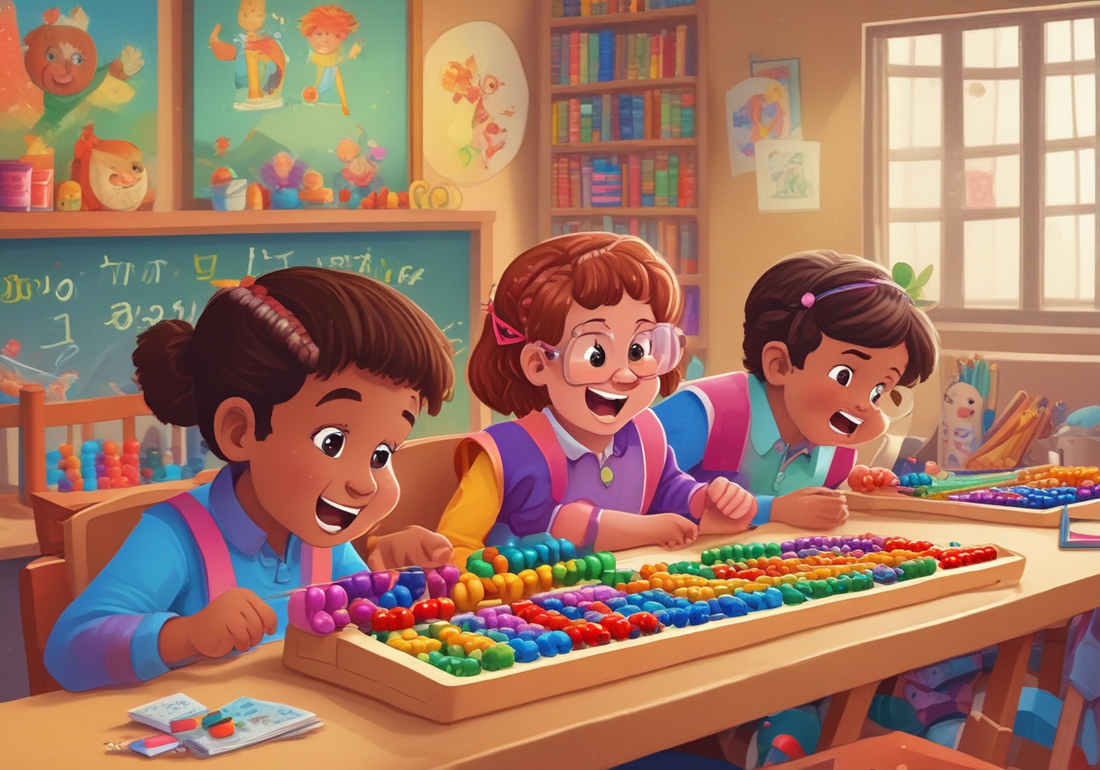
Key Highlights
Discover how the abacus tool, combined with digital games, fosters student engagement and makes learning mathematics enjoyable for children.
Understand the cognitive benefits of abacus games, including enhanced focus, memory, and critical thinking skills.
Explore various abacus-based activities that cover addition, subtraction, and multiplication problems in an interactive format.
Learn how a game-based abacus approach encourages independent problem-solving through visualization and strategic thinking.
Dive into the benefits of gamified learning platforms designed to create a collaborative and engaging experience for young learners.
Find out how you can empower your child by exploring innovative abacus programs available on platforms such as Amazon.
Introduction
Making math fun for kids can be tough, but using the abacus tool along with interactive digital games is making it simpler. With bright beads and fun challenges, abacus games boost student engagement. They make learning math more enjoyable and effective. The abacus tool connects old teaching methods with new technology, helping kids have a good time while learning. By using this dynamic way to learn, children get better at math and also quicken their thinking skills. Are you ready to learn more about abacus games? Let’s get started!
Exploring the Basics of Abacus Games for Kids
 Abacus games are made to help children enjoy learning math. The games use the bright look of beads and add problem-solving, which children need for math in real life. With new digital tools, kids get to play in ways that feel like a sport, which keeps them excited and ready to do better each time.
Abacus games are made to help children enjoy learning math. The games use the bright look of beads and add problem-solving, which children need for math in real life. With new digital tools, kids get to play in ways that feel like a sport, which keeps them excited and ready to do better each time.
When children use the abacus and move the beads, they look at numbers and think about how to solve problems. These games help build strong base skills in math. With this way of learning, math ideas are turned from hard words into real things kids can see and touch. This helps them feel good about math and learn more.
What is an Abacus and How Can It Benefit Children?
An abacus is a simple and easy tool that uses rows of beads to show numbers. This tool has been here for many years to help people make math easy and help them see how numbers work together. While it may seem old, putting it together with fun, game-like learning makes it great for kids.
One of the biggest strengths of using an abacus is that it helps you get the correct answer every time, by moving the beads with your hands. Kids get to learn things like addition and subtraction in a way that is real and easy to try out. This hands-on work pulls students in and gives students much more student engagement than old ways of just repeating facts.
Another good thing about the abacus is how it helps the brain. It shows that kids can grow problem-solving skills by working with the beads, using their mind and ways to "see" math. The abacus helps kids get better at thinking in their head and doing math without feeling scared. With this way of learning, math turns into a good challenge that kids can enjoy and want to try.
Essential Abacus Games to Get Started

Abacus games give kids many ways to learn and build their math skills. The games are fun and help children get better at math for many years to come.
Addition and Subtraction Challenges: Kids use beads to count up or down. This helps them with the basic tasks of adding and taking away numbers.
Multiplication Problems: Children solve multiplication problems by grouping beads. It is much easier for them to see how to do multiplication this way.
Speed Races: Kids answer questions fast. This helps them get better at being quick and right with their answers.
These abacus games help children think in a clear, logical way. They make kids feel good about solving problems. It does not matter how fast a child learns, the games let each one move at his or her own pace and enjoy learning. Children can play alone or in a group. These abacus activities open the way to good math skills while making the work feel just like play.
Conclusion
To sum up, abacus games are a good way to get children involved in learning. These kinds of games help build thinking skills and are fun at the same time. Kids can learn the basics of math, while they also get better at solving problems and thinking things through. If you bring abacus games into your child's playtime, you can help them love to learn for years to come. You just need to grab an abacus and start together. If you want more ideas or help with using abacus games in your child's daily life, you can always ask for tips or support.

